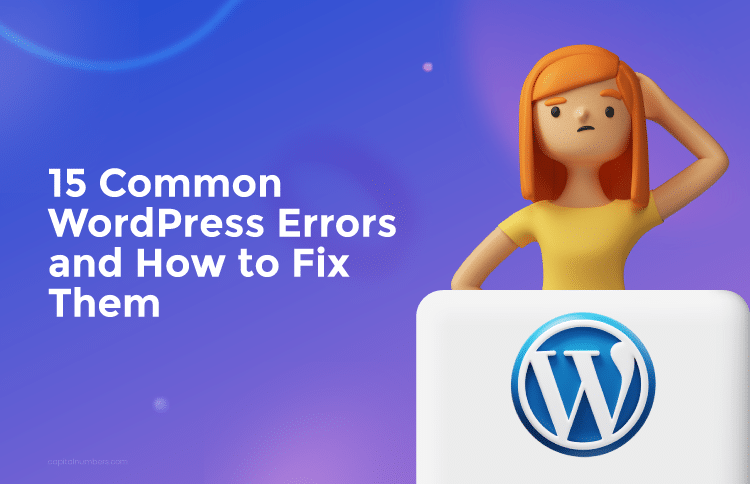How to Secure Your Website Using WordPress Plugins
Table of Contents
Like any other content management system or CMS, WordPress websites are also vulnerable to cyber attacks, data breaches, and hacking. However, the good news is that WordPress takes this issue very seriously. Not only does it constantly strive to fortify its software, but it develops new plugins regularly to help you secure your website. This is why; each time you receive a notification from WordPress saying that there are new updates available, make sure you download and upgrade your website to keep it protected. You can also choose to set up automatic upgrades. Here are a few other pointers to keep in mind to ensure the safety of your WordPress site.
Restrict the Number of Plugins and Customizations
Considering that WordPress has a mind boggling selection of plugins and add-ons, you might want to add as many as you can to your website. However, the more plugins you have, the more vulnerable is your website. Hackers can access your admin and personal information by way of the plugins you’ve got installed. This is why; it is essential that you install only those plugins that you absolutely need and delete the others. In addition to posing a security threat, too many plugins also result in longer loading times.
Update Your Plugins Regularly
Aside from updates to your WordPress site, you’ll also receive notifications of the updates for your plugins. Make sure you update them since each upgrade is designed to make your site more secure. Like automatic upgrades for your website, you can also set up automated upgrades for the plugins. Check for the plugins you’re not using and remove them. Remember that simply deactivating a plugin is not enough. You must make sure to delete it. The logic behind this point is simple. If you’re not using a plugin, you’re not likely to bother upgrading it. And, each outdated tool presents a serious security risk.
Verify the Sources Carefully
When choosing the plugins for your website, whether free for use or paid for, make sure you download them only from reputable sources like Themeforest, WordPress or any others. Plugins from such sources are likely to be carefully scanned before they are added to the Plugin Directory or Theme Directory. You can be assured that they are safe to use and that you’ll receive the necessary updates to keep them protected. You might find certain sites that allow you to download premium plugins free of cost. Be wary of such sites since they can have malicious code that can corrupt your website. In addition, you might not be able to secure these plugins.
Choose Secure Passwords
Select a combination of letters, numbers, and symbols that are difficult for hackers to decipher. You also have the option of creating strong passwords using tools like the Strong Password Generator or Norton Password Generator. Make note of the chosen password in a safe place, preferably in writing where you can refer to it if you need to. Change the password from time to time to stay one step ahead of data breaching tools.
In case you have writers and other users working on your WordPress site, have them also change their passwords regularly. A better bet is to restrict the number of users that have access to your site and give out passwords to trusted personnel only. You also have the option of allowing them a limited number of accesses to complete the task you assign to them.
Protect Yourself From Brute Force Attacks
Hackers use a strategy called brute force to get into your website. They try to login repeatedly until they crack the password. To protect yourself, you can install a plugin that identifies the IP address being used to login to your website. It limits the number of times the user can try to login within a fixed time period. Another very useful tool to protect your site from such attacks is to add a two-step authentication code. Users will need to add not just the password but also the authentication code that is sent to their phone via SMS.
Create Backups for Your Website
Set up a backing up schedule and create a saved version of your website regularly. In case your site is compromised, you always have the option of reverting to the saved version. You have the option of installing a plugin that can automatically takes care of this task for you. You’ll only have to hit the hit the restore button to have your website back up and running.
Install Scanners for WordPress
You might have scanners on your computer to check for viruses and malware. You can now find security scanners online that check your WordPress site, its core files, themes, and plugins for malware and malicious code. Install this plugin to keep your website protected.
Record Activity on Your Dashboard
While WordPress records all activity on your website in a log, you have the option of getting a more efficient plugin to track your dashboard. In addition to tracking what the users on your website are doing, you can also spot the actions of hackers, if any. Many a time, certain files and plugins you install can change other files and how they perform. If case a file causes errors on your website, you can use this plugin to pinpoint the exact cause of the break and fix the problem. You can also find the source of any malware entering your site.
Change Your Login Page
Once you have your website running, you can install a security plugin that changes the name or location of your login page. No amount of automated brute force attacks aimed at deciphering your password can be successful. You can use this plugin to hide your WordPress Admin page and the important plugins you’ve installed.
These are some of the most important plugins you can use to secure your website. However, to get additional protection, you can make use of tools like installing a firewall and hiding the names of the authors that post on your site. You must also choose a hosting platform that can give you the best protection possible including keeping your website segregated from the others it may be hosting. As a final precaution, make sure you keep your computer upgraded with the newest software and operating systems that are better equipped to deal with security breaches.














